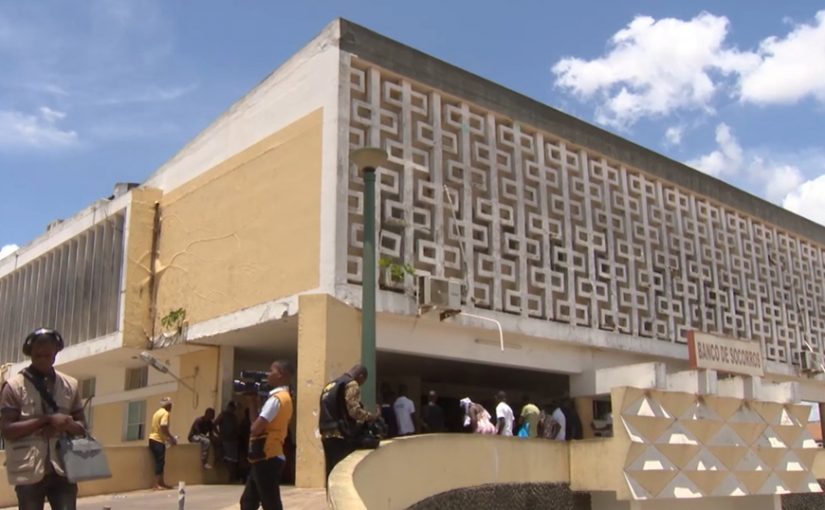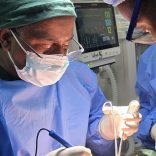Mozambique: Five cases of human trafficking recorded over first semester
Mozambique: Spanish NGO brings skin cancer surgery to Nampula province – Watch

Screen grab: TVM
Supported by a Spanish NGO, Nampula Central Hospital (HCN) will, for the first time in its history, perform surgery to treat skin cancer, and is expected to reach more than 30 people with albinism, it was announced on Monday.
“This is a campaign aimed at people who have problems with albinism. We will screen and treat lesions, including skin cancer surgery,” HCN dermatologist Marcelo Banquimane announced at a press conference in Nampula yesterday, explaining that the campaign will include the presence of two Spanish specialists, working in collaboration with local doctors.
At least 36 people in need of surgery have already been referred for surgical intervention at HCN, and the campaign will run from June 2 to 7, promoted by the Spanish non-governmental organization (NGO) Africa Directo, which has been working in African countries for over 30 years.
According to Banquimane, the aim is essentially to identify and operate on people with albinism who have cancerous skin lesions resulting from prolonged sun exposure, one of the main causes of premature death.
In the first phase, patients from Nampula, Moma, Muecate, Nacarôa, Nacala-Porto and Larde districts will be treated, and protective creams will be distributed.
“This is an exploratory campaign consisting of a mission of doctors who have been carrying out these activities, mainly in the south [of Mozambique] for some years now. Knowing that we had a large number of people living with albinism in Nampula, we requested this mission so that they could support us in the treatment,” Banquimane explained.
The coordinator of the Amor à Vida Association, Válter Mussa, which is supporting the process on the ground, explained to Lusa that, in Nampula province, Moma district has, according to a survey yet to be completed, the largest number of people with skin pigmentation problems, with more than 40 cases.
Across Nampula province, of the 120 people mapped, 36 require surgical intervention, he added.
“The rest will be monitored, because there is the surgery and consultation part. In other words, we will monitor the development of each case (…), some of whom may benefit from a future campaign,” Mussa pointed out.
The official also stressed that the interventions would “significantly impact the lives of these people”, who also suffer from pigmentation-related myths and discrimination.
“They have never undergone an intervention procedure. In other words, for us it is a giant leap. […] Therefore, we want to say that this is a pilot campaign and it will depend on the results we obtain to continue with future campaigns to serve a greater number of people on a permanent basis,” he concluded.













Leave a Reply
Be the First to Comment!
You must be logged in to post a comment.
You must be logged in to post a comment.